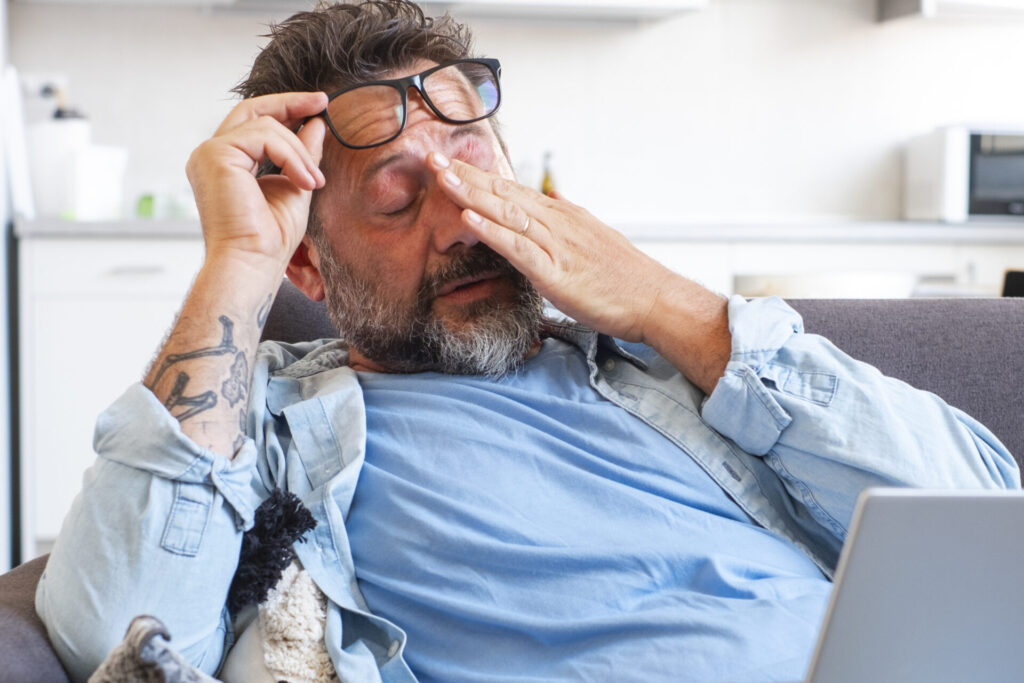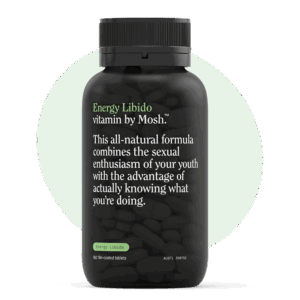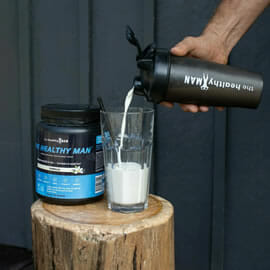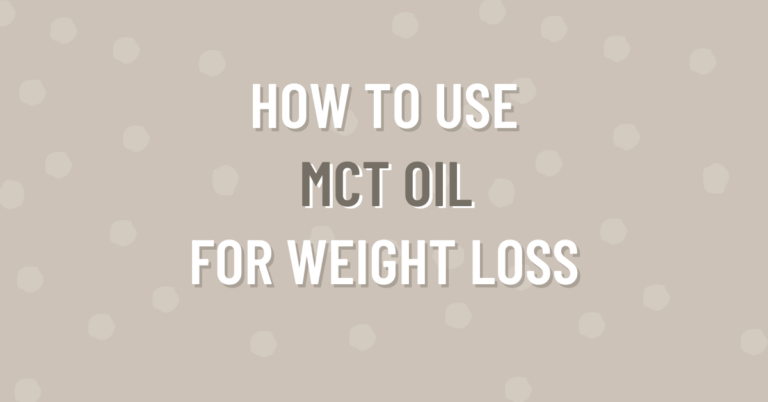Boost Energy & Libido Naturally: Top Tips for Men 25-55
Tired, Stressed, and Low on Drive? Discover What’s Draining Your Energy and Libido — and How to Take It Back”
Let’s be real — if you’re a man between 25 and 55, chances are you’ve felt it: dragging through your afternoons, saying no to things you used to love, or feeling a distance from your partner that wasn’t there before. Maybe you’re not waking up as energised, workouts feel harder, and your libido just isn’t what it used to be.
You’re not alone. In fact, studies show that up to 40% of men over 40 experience low libido — and it’s happening to younger guys too. The good news? Most of these issues are fixable once you understand what’s behind them.
In this post, we’ll break down the surprising causes of low energy and libido, help you spot the symptoms early, and show you practical, effective solutions to reclaim your vitality — including a quick, anonymous quiz designed to help you identify what’s holding you back and what you can do about it.

What’s Really Behind Low Energy and Libido in Men?
When your energy and sex drive dip, it’s not just “getting older” — it’s your body sending a message. Here are the most common culprits:
1. Hormonal Imbalances (Yes, Even in Your 30s)
Testosterone naturally declines about 1% per year after 30, but factors like stress, poor sleep, and processed foods can speed this up. Low testosterone (or “Low T”) is one of the biggest contributors to reduced libido, chronic fatigue, and even mood swings.
2. Chronic Stress
Modern life doesn’t make it easy to switch off. Cortisol, your stress hormone, directly interferes with testosterone production. High cortisol levels drain your energy and dampen sexual desire.
3. Poor Sleep
Testosterone production peaks during deep sleep. If you’re clocking fewer than 6 hours a night, your levels could be taking a significant hit.
4. Nutrient Deficiencies
Low levels of zinc, magnesium, and vitamin D — all essential for testosterone production and energy metabolism — are incredibly common. Studies indicate that up to 70% of adults don’t get enough magnesium from their diet.
5. Lifestyle Factors
Sedentary routines, excessive alcohol, smoking, and diets high in sugar and processed foods tank your energy, disrupt hormone levels, and kill libido.
How to Spot the Symptoms Before They Worsen
Low energy and libido often creep up slowly. Pay attention to these signs:
- Feeling exhausted despite sleeping well
- Trouble concentrating or remembering things
- Low motivation or enthusiasm for hobbies and workouts
- Irritability or mood swings
- Reduced sexual desire or difficulty maintaining arousal
- Slower recovery after exercise
If several of these resonate, it’s time to take action.
The Most Effective, Research-Backed Solutions
Good news: you don’t have to accept this as your new normal. Here’s what works:
1. Optimise Sleep Hygiene
Prioritize 7-8 hours of quality sleep. Keep your room cool, limit screens before bed, and maintain a consistent schedule — it makes a bigger difference than you think.
2. Manage Stress Intelligently
Incorporate daily stress relievers like meditation, breathwork, or short walks. Even 10 minutes of mindfulness can lower cortisol and improve testosterone balance.
3. Clean Up Your Diet
Focus on whole, nutrient-dense foods:
- Protein-rich meats and fish
- Healthy fats (avocado, olive oil, nuts)
- Vegetables loaded with antioxidants. Cut back on processed carbs and excessive alcohol.
4. Move Daily — But Smartly
Regular resistance training boosts testosterone and energy. Aim for 3-4 sessions a week. Don’t overdo cardio — too much can backfire hormonally.
5. Address Deficiencies
Consider supplementing with:
- Vitamin D3 (especially if you’re indoors a lot)
- Zinc and Magnesium
- Natural testosterone-supporting herbs like Ashwagandha and Tongkat Ali
6. Track and Test Your Hormones
If you suspect deeper issues, a simple blood panel can reveal testosterone, cortisol, and nutrient levels. Knowledge is power.
Common Misconceptions About Male Sexual Health
Let’s bust a few myths while we’re here:
- “Low libido only affects older men.”
False. Stress, poor sleep, and lifestyle habits are affecting men in their 20s and 30s at alarming rates. - “It’s just a phase — I’ll bounce back.”
Maybe. But ignoring early symptoms often leads to deeper issues later. Prevention beats treatment. - “Taking a pill will fix everything.”
Not without addressing the root causes. Quick fixes rarely work long-term.
Why Our Quiz (or Libido Supplement) Can Help You Start Today
Sometimes you need a roadmap. That’s why we created a quick quiz to help you identify your top energy and libido blockers and learn what you can do about them.
It takes less than 2 minutes, and your results will give you:
✅ Personalised recommendations
✅ The best natural solutions for your situation
✅ Advice you can act on today
Or, if you’re ready to boost your vitality immediately, check out our clinically formulated male health libido supplement made with research-backed ingredients proven to support testosterone, energy, and drive.
Reclaim Your Energy, Confidence, and Connection
Low energy and libido aren’t things you just have to accept. They’re signals that something in your body and lifestyle needs attention. The sooner you listen, the faster you can regain the spark — not just in the bedroom, but in every part of your life.
Take the first step now:
👉 Take Our Free Quiz — and discover what’s holding you back and how to fix it.
Or check out our all-natural male vitality formula trusted by men who refuse to settle for “just okay.”

Your energy. Your drive. Your life.
Take it back today.
FAQs
What are the common causes of low libido in men?
Common causes of low libido in men include low testosterone levels, relationship problems, high blood pressure, diabetes, and health conditions that affect hormonal balance. Other factors like lifestyle changes, stress, and sleep quality can also contribute to the loss of libido.
How can I increase energy levels naturally?
To increase energy levels naturally, consider incorporating regular exercise, a balanced diet, good sleep habits, and stress management techniques. Staying hydrated and avoiding excessive alcohol and caffeine can also help boost your energy.
What lifestyle changes can help boost libido?
Lifestyle changes that can help boost libido include maintaining a healthy diet, exercising regularly, reducing stress, improving sleep quality, and addressing any underlying health conditions. Open communication with your partner can also enhance intimacy and desire.
Can low testosterone affect my sex life?
Yes, low testosterone levels can significantly affect libido and sexual function, leading to a reduced interest in sex and erectile dysfunction. It’s important to consult with a healthcare provider for evaluation and potential treatment options.
What symptoms might indicate a loss of libido?
Symptoms of loss of libido may include a low sex drive, difficulty achieving or maintaining an erection, and a lack of sexual thoughts or fantasies. If you are experiencing these symptoms, it may be beneficial to seek advice from a healthcare professional.
How can thyroid issues impact my libido?
Thyroid issues can cause hormonal imbalances that affect libido. Hypothyroidism, for example, can lead to low energy levels and reduced sexual desire, while hyperthyroidism may also disrupt normal sexual function. It’s crucial to manage thyroid health to maintain libido.
What treatment options are available for low libido?
Treatment options for low libido may include hormone replacement therapy, addressing underlying health conditions, lifestyle modifications, and counselling for relationship problems. Consulting with a healthcare provider can help determine the best approach for individual needs.
How does aging affect testosterone levels and libido?
As men age, testosterone levels typically decline, which can lead to a lower sex drive and energy levels. This natural decrease can contribute to relationship problems and a decrease in sexual function, making it important to monitor and address these changes.
Are there natural supplements that can help boost libido?
Some natural supplements, such as ginseng, maca root, and fenugreek, have been suggested to help boost libido. However, it is important to consult with a healthcare provider before starting any supplements for sex drive, as they can interact with medications or underlying health conditions.
How can diet and exercise help with low sex drive?
Diet and exercise play crucial roles in addressing low sex drive. A diet rich in whole foods, lean proteins, healthy fats, and antioxidants supports optimal testosterone production and energy levels. Foods like oysters (zinc), dark chocolate, and watermelon may naturally enhance libido. Regular exercise increases circulation, boosts endorphins, and can raise testosterone levels – all factors that improve libido and sexual function. Both cardio and strength training are beneficial, with research suggesting that resistance exercises particularly support testosterone levels and can help overcome loss of libido.
How do stress and relationship problems impact libido in men?
Stress and relationship problems significantly affect libido in men. Chronic stress elevates cortisol levels, which can suppress testosterone production and cause fatigue. Meanwhile, unresolved relationship problems such as poor communication, unmet emotional needs, or unresolved conflicts can diminish emotional intimacy, leading to lower desire for physical intimacy. The psychological aspect of sexual health is equally important as the physical component. Addressing these issues through stress management techniques, couples counselling, and open communication about needs and desires can help restore interest in sex and improve overall relationship satisfaction.
How can I maintain healthy libido and energy levels as I age?
Maintaining healthy libido and energy levels as you age requires a proactive approach. Focus on consistent physical activity with both cardiovascular and strength training exercises. Eat a nutrient-rich diet with adequate protein, healthy fats, and antioxidants. Manage stress through mindfulness, meditation, or hobbies. Ensure 7-9 hours of quality sleep nightly.
Moderate alcohol consumption and avoid smoking. Schedule regular health check ups to monitor testosterone levels and address any concerns early. Nurture emotional intimacy in your relationships, as this supports sexual desire. Finally, maintain a positive attitude toward sexuality and aging—many men enjoy healthy sex lives well into their senior years with the right lifestyle choices.
Check out these other posts
Description for this block. Use this space for describing your block. Any text will do. Description for this block. You can use this space for de





